Seven former teachers and administrators at Cheverus High School in Portland were on a list of 50 credibly accused priests made public Tuesday by the governing body of Jesuits for all Northeast states, including Maine.
The release by the USA Northeast Province of Jesuits was the latest in a series of moves toward transparency by the religious order of Catholics commonly associated with education. Last month, the other four Jesuit provinces in the U.S. released their lists of priests who have been accused of child sexual abuse since the 1950s, bringing the nationwide total to 287. The actual total may be lower because some priests appear on multiple lists.
For some of the priests, the abuse accusations were being disclosed for the first time.
The priests from Cheverus and the years of their service were: William Cahill, (1950-1960); Stephen Dawber, (1978-1984); Joseph Dooley (1954-1958); Eugene Orteneau (1978-1979); Richard Roos (1974-1980); James Talbot (1980-1998); and James Walsh (1970-72 and 1977-1979). Joseph Laughlin, who served at the St. Ann Mission on Passamaquoddy tribal land in Princeton from 1977-1982, also was on the list.
Only Talbot and Cahill have been accused of abuse that occurred during their time at Cheverus.
The Northeast list, while detailed, did not provide a complete timeline of service for many Jesuits priests, who often were shuffled from place to place.
Boston attorney Mitchell Garabedian, who has represented hundreds of church abuse victims, said the list was lacking, particularly because in many cases there were significant gaps in the Jesuits’ timeline. In one instance, a priest with ties to Maine had no placements listed after 1979, even though the abuse allegations against him were from 1992-95 and even though he didn’t leave the Jesuit ministry until 2003.
There appear to be other discrepancies, too. For instance, a priest who was on the list released last month by the Jesuit province for West Coast states – Michael Kossak – spent four years at Bishop Connolly in Massachusetts in the early 1980s and then returned to the New England province of Jesuits from 1988-2003. He is not included on the New England list.
“Given that the Jesuits have actively practiced the cover-up of clergy sexual abuse for decades upon decades, victims question whether the criteria used by the Jesuits in determining if a pedophile priest has been credibly accused is fair or is just a means to name as few pedophile priests as possible,” Garabedian said in a statement. “Certainly, given the kangaroo court nature of the Catholic Church, there is a need for a truly independent investigation to determine what the Jesuits are hiding and why.”
It appears that this is the first time that three of the men – Laughlin, Roos and Walsh– have been publicly identified as accused priests. None of the three has been named in any public reports, and none of them is on a list of accused priests maintained by the website BishopAccountability.org.
A Jesuit spokesman did not respond to follow-up questions about the list.
None of the priests with ties to Maine is still teaching. Only Talbot, who was sentenced recently after being convicted of abuse, and Roos, are still alive. Roos did not return a call seeking comment Tuesday.
Cheverus posted the list of the seven priests on its website Tuesday, accompanied by a statement from its president, the Rev. Robert Pecoraro.
“These are difficult times for the Catholic Church. Nationally, recent revelations exposed an even greater depth and breadth of the sexual abuse crisis within our Church and triggered intense and raw emotions,” he said. “We may never realize the full impact that this abuse crisis has had on individuals, families, or communities. Lives have been impacted in profound emotional and psychological ways. The decision by the Northeast Province to face this shameful part of our history and release this list of names is a necessary step towards healing.”

James Talbot, former priest and Cheverus High School teacher, is handcuffed by a bailiff on Sept. 24 at the Cumberland County Courthouse after pleading guilty to sexually assaulting a minor and being sentenced to serve three years in prison.
In addition to the priests with ties to Maine, the list included many more Jesuits from well-known East Coast institutions: Boston College High School, Fordham Preparatory School and Canisius High School in New York, and Fairfield College Preparatory School in Connecticut, among others. In many cases, the priests who served at Cheverus also served at one or more of those institutions.
According to a spokesman for the Jesuits, the most recent credible accusation dates back more than 20 years.
“At the heart of this crisis is the painful, sinful and illegal harm done to children by those whom they should have been able to trust,” the Rev. John Cecero, Northeast provincial leader, said in a statement. “We did not know any best practices to handle these violations many decades ago and regrettably made mistakes along the way. What winds up being a very shameful history for the Church at large was made clear by investigative reporting in Boston in 2002.”
Some abuse cases resulted in lawsuits and financial settlements. Others led to criminal charges. Some were handled more quietly. In cases where a priest was credibly accused but not in jail, he was placed on a “safety plan,” that included removal from ministry and monitoring his whereabouts.
The Jesuits are the largest male religious order in the church, with an emphasis on teaching and intellectual research. Its priests are not under the authority of local bishops. Instead, they report to a regional province, of which there are five in the United States. Religious order priests, including Jesuits, account for about 31 percent of Catholic priests nationwide, according to the Center for Applied Research in the Apostolate, a research center at Georgetown University. Because they don’t report to a diocese, religious order priests have been criticized by abuse victim advocates for having little accountability.
The USA Northeast Province comprises 550 Jesuits and is the largest in the world. However, its list of 50 credibly accused priests was less than half that of the Jesuits West and also smaller than the list released by the Midwest Jesuits.
Maine’s Jesuit presence is most often associated with Cheverus and the Jesuit-run Our Lady of Hope Parish, which oversees two churches in Portland, St. Pius on Ocean Avenue near Cheverus and St. Joseph, located with the Catholic elementary school St. Brigid.
Cheverus was founded in 1917 and has been owned and operated by the Jesuits since 1942. It was an all-boys school until 2000 and has educated many prominent and powerful people. Some of the allegations involving Cheverus priests, such as Talbot, already have been made public.
Not included on the list was former longtime Cheverus track coach Charlie Malia, who was accused by multiple men of abuse and subsequently fired in the late 1990s. Malia, who is not a Jesuit, was never charged.
Jesuits also have been assigned to local parishes across the state, both historically and currently. In the Diocese of Portland, which covers all of Maine, there are 118 diocesan priests and 34 religious order priests, according to Dave Guthro, a spokesman for the diocese.
Bishop Robert Deeley of the Portland Diocese called the Jesuit list “distressing.”
“Though Jesuits who have served in Maine are under the authority of the Jesuits’ USA Northeast provincial, speaking for the Diocese of Portland, I hope that the release of the list provides continued healing and peace for victims/survivors everywhere,” he said in a statement. “That none on the list are in active ministry offers some comfort but, as I have said, these stories of past abuse stain the reputation of the vast majority of Catholic priests who are men of great integrity. This would include the many faithful Jesuits who have served in Maine since the 1600s.”
Another name included on the Northeast list was Roy Drake, who also has ties to Maine. He has been accused of abuse by a Connecticut man, Neal Gumpel, who said Drake assaulted him in 1974 in Castine, Maine. Drake, who previously taught in Ohio and New York, was a member of the faculty at Maine Maritime Academy, although not under the authority of the Jesuits. Gumpel was a 15-year-old visiting his brother, who was a student there.
Drake’s name was included on another list released by the USA Midwest Province of Jesuits related to his time in Ohio. But the Jesuits also settled a claim against Drake by a victim of his while he taught at Fordham Prep in New York.
Although the Jesuits have acknowledged Gumpel’s allegations as credible, they have not made any attempts to offer a settlement. In the Jesuits’ official record for Drake, there is a gap between 1968 and 1978, which includes his time at MMA.
Gumpel and Robert Hoatson, a New Jersey-based victim advocate, protested the release of names Tuesday outside the Northeast Jesuits’ headquarters in Manhattan because the Jesuits still have not been fully transparent about Drake.
What follows is a list of the accused priests with ties to Maine, with the information about them drawn from publicly available records, news reports and information provided by the Jesuits:

William B. Cahill
• William B. Cahill – Cahill was a priest and teacher at Cheverus High School from 1950-1960. He also served as the school’s athletic director for part of that time.
Before his time in Maine, he worked at schools in Massachusetts and Connecticut. After he left Cheverus, Cahill had 10 additional placements, including at Boston College High School, and later as chaplain for Boston City Hospital.
Documents released in 2005 by the Maine Attorney General’s Office revealed that Cahill was accused of abusing at least three Cheverus students between 1950 and 1960.
It’s not known when those allegations were first made. He was never charged and died in 1986.

Stephen Dawber
• Stephen Dawber – Dawber first came to Cheverus in 1978 and became the school’s president a year later. He served as president until 1984 then went on to Bishop Connolly High School in Fall River, Massachusetts, followed by 12 years at Boston College High School. Dawber also had been at BC High from 1963 until 1977.
Dawber was accused of abusing three students during his first stint at BC High in the 1970s. Those allegations didn’t surface until 2002 as part of the Boston Globe’s “Spotlight” investigation into the Catholic Church. He was suspended from the ministry but never charged.
Dawber spent the final seven years of his life at the Campion Health Center in Weston, Massachusetts, a Jesuit-run retreat that houses retired priests, including some who have been accused of abuse.
Dawber is connected to another priest who has been accused. He recommended that Cheverus hire James Talbot, with whom he taught at BC High. The Boston Globe later reported as part of its “Spotlight” investigation in the Catholic Church that Dawber was aware of Talbot’s abusive behavior. (see entry for Talbot below)

Joseph C. Dooley
• Joseph Dooley – Dooley taught at Cheverus from 1954-1958. Before that, he was at BC High and then Fairfield Prep in Connecticut. He also returned to BC High in 1958 after leaving Cheverus and stayed there until 1980.
He died in 1983.
Dooley was accused posthumously of abusing a minor in 1965 while he taught at BC High. The alleged victim was a girl from Cape Cod whose family was close to Dooley.
Another victim also alleged to the Maine Attorney General’s Office in 2002 that Dooley molested her in Portland but no approximate dates were made public.
There were never any accusations against Dooley from his time at Cheverus.

Joseph R. Laughlin
• Joseph Laughlin – According to information provided by the Jesuits, Laughlin served in Maine from 1977-1982 at St. Ann Mission, which is located on Passamaquoddy tribal land in Princeton.
The parish that oversees that church is part of the Portland Diocese but it has been run by Jesuits for years.
Before his time in Maine, Laughlin worked at Fairfield Prep, BC High and at a parish in Middleboro, Massachusetts.
The allegation of abuse dates to 1975 or 1976 when he was at that Middleboro parish, shortly before he came to Maine.
However, that report wasn’t made until 1990, at which point Laughlin was restricted from public ministry.
This appears to be the first time Laughlin has even been publicly named.
He died in 2013 and was living at the Campion Center.
• Eugene Orteneau — Orteneau worked at Cheverus High School in 1978 and 1979. He entered the order in 1972 but was not ordained until 1982, so he would have been a novice during his time in Maine.
He had previously worked at another high school in Massachusetts. Those placements were the only two included on the province’s list of accused priests, which does not document Orteneau’s placements after 1979. But news reports show Orteneau later worked at a Jesuit community in New York and then a parish in Connecticut.
Jesuit leaders removed Orteneau in 1994 from St. Thomas Aquinas Chapel in Storrs, Connecticut, but would not publicly say why. The Hartford Courant at the time described the young priest as popular and reported that he kept a sleeping bag in his office for troubled teens who needed a place to stay. Orteneau was later accused of abusing as many as three boys during that time.
One victim, who was 16 years old at the time of the abuse, sued the Roman Catholic Diocese of Norwich and the Jesuits in 2005. The diocese ultimately paid a quarter of a $1.2 million settlement, while the remaining amount fell to the religious order.
It is not clear where Orteneau went when he left the Connecticut parish, but the Jesuits reported he left the order in 2003. An obituary stated he died in 2009 in North Carolina at the age of 58.

Richard H. Roos
• Richard Roos — Roos is one of two priests on the Jesuit list who is still alive and has a connection to Maine.
Despite admitting to an abuse allegation, Roos appears to still be an ordained priest working in a Jesuit community in Massachusetts.
The time Roos spent at Cheverus High School was fragmented. He worked there from 1974-1978 and 1979-1980. It is not clear what he did immediately after leaving the Portland high school because the Jesuits reported his next placement as Jamaica in 1984. He worked there for a decade.
Roos is accused of abusing a minor in the 1980s, though it is not clear if that includes his time at Cheverus. The report was made in 2001, the same year Roos was restricted from public ministry. The province said he admitted to the abuse.
Before the report, Roos also had placements in Massachusetts at a high school and a retreat center. The Jesuit list does not identify where Roos has been since 2002, but a 2012 biography on the province website said he had worked as director of communications and information technology for the New England Province and minister at another Massachusetts retreat center. At the time the biography was published, Roos was serving as minister of the Blessed Peter Faber Jesuit Community, where he collaborated on retreats for homeless men and celebrated Mass in prisons. The community is located on the Brighton campus of Boston College.
As of Tuesday, the main phone line at the community still listed Roos as the administrator. A message on his office line was not immediately returned.
This appears to be the first time Roos has been publicly named.

James Talbot
• James Talbot — Talbot spent nearly two decades at Cheverus. He is now in prison for sexually abusing a boy in a Freeport parish in the 1990s.
Talbot worked at BC High from 1972 to 1980. He then transferred to Cheverus and remained there until 1998, when former student Michael Doherty came forward to say that Talbot had abused him in the mid-1980s.
Talbot was fired from the school about two months after the accusations were brought to the bishop, and Doherty settled a lawsuit in 2001. His case prompted others to come forward and by 2003, 14 men had settled lawsuits totaling more than $5.2 million.
In 2005, Talbot pleaded guilty to raping two students decades before in Boston. He served six years in prison in Massachusetts and then was living at a Jesuit facility for troubled or former priests in Missouri. He was laicized in 2013.
Two years ago, Talbot was charged again in Maine based on the allegations from a boy who met the former priest at St. Jude Church in Freeport. He pleaded guilty and is now serving a 3-year prison sentence in the Maine State Prison.
The Jesuit list released Tuesday notes that Talbot is incarcerated but does not mention his earlier conviction or his work at St. Jude.
• James P. Walsh — Walsh spent a decade in various placements in Portland.
He worked at Cheverus from 1970 to 1972, and then again from 1977 to 1979. News reports from the time say he was hired to be a guidance counselor. His assignment is listed as “retreats” in Portland between 1973 and 1976. His final job in Portland was at Sacred Heart Parish from 1979 to 1980.
Walsh then returned to BC High, where he had worked years before. The alleged abuse took place during his time there in 1984 and 1985. The Jesuits received reports of that abuse in 2002 and 2004. Walsh was removed from active ministry in 2002 and died in 2009.
It is unclear from the list where Walsh was in the nine years between the end of his job at Boston College High School in 1993 and his removal from ministry in 2002. An obituary from 2009 stated he lived in Weston, and his funeral took place at the Campion Center there.
This appears to be the first time Walsh has even been publicly named.
Material was drawn from publicly available records, news reports and information provided by the Jesuits.
Staff Writer Megan Gray contributed to this story.
Eric Russell can be contacted at 791-6344 or at:
Twitter: PPHEricRussell
Send questions/comments to the editors.


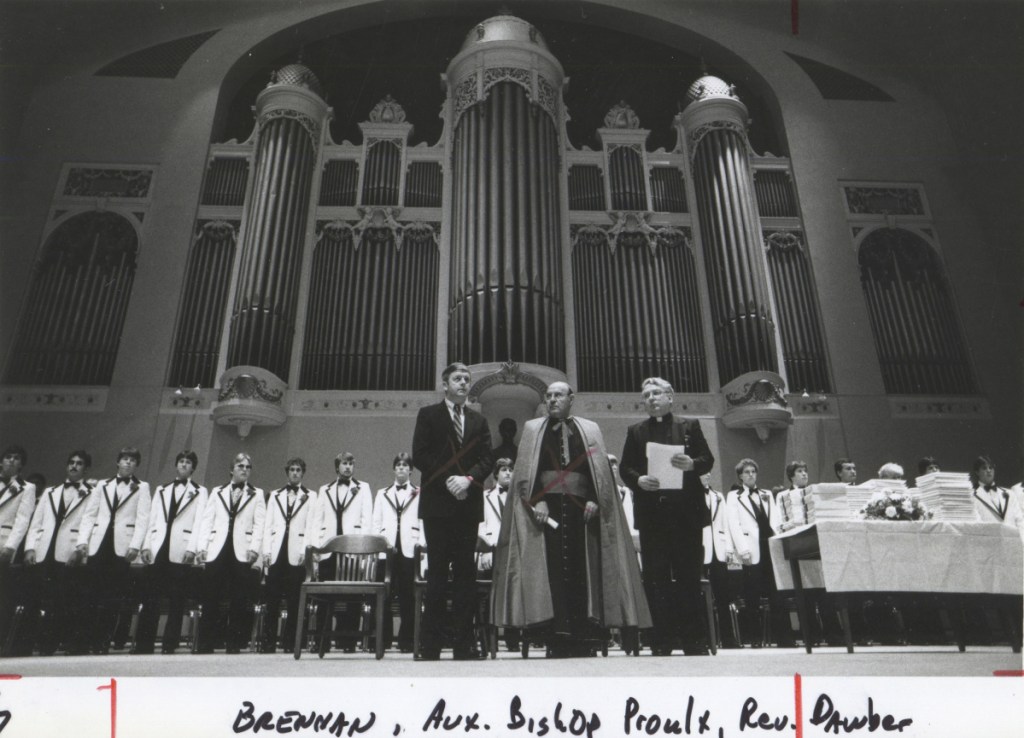
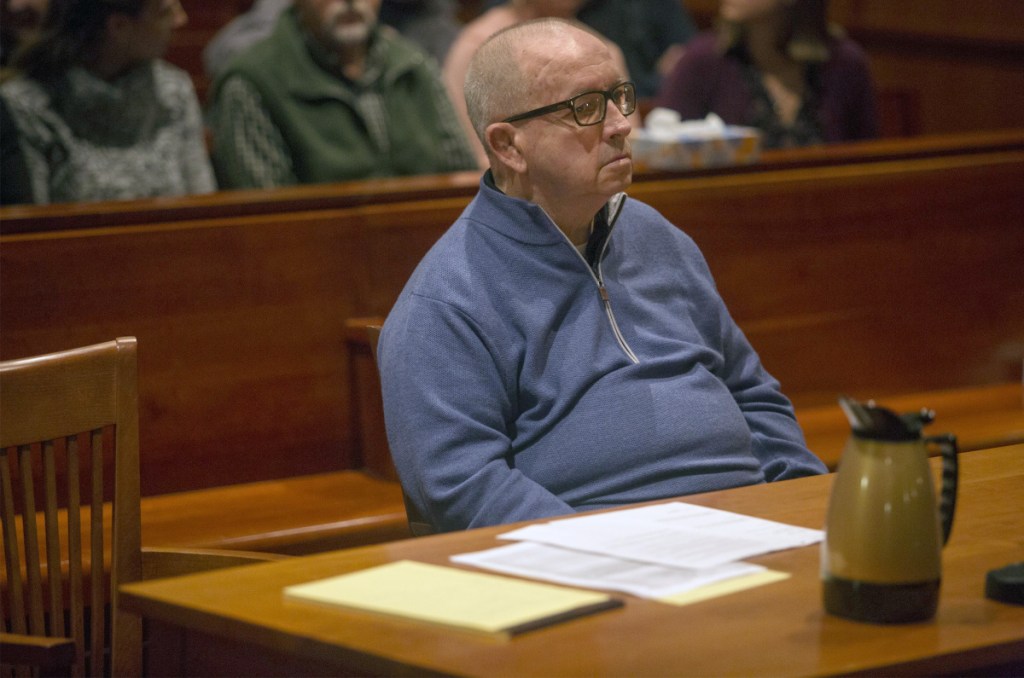
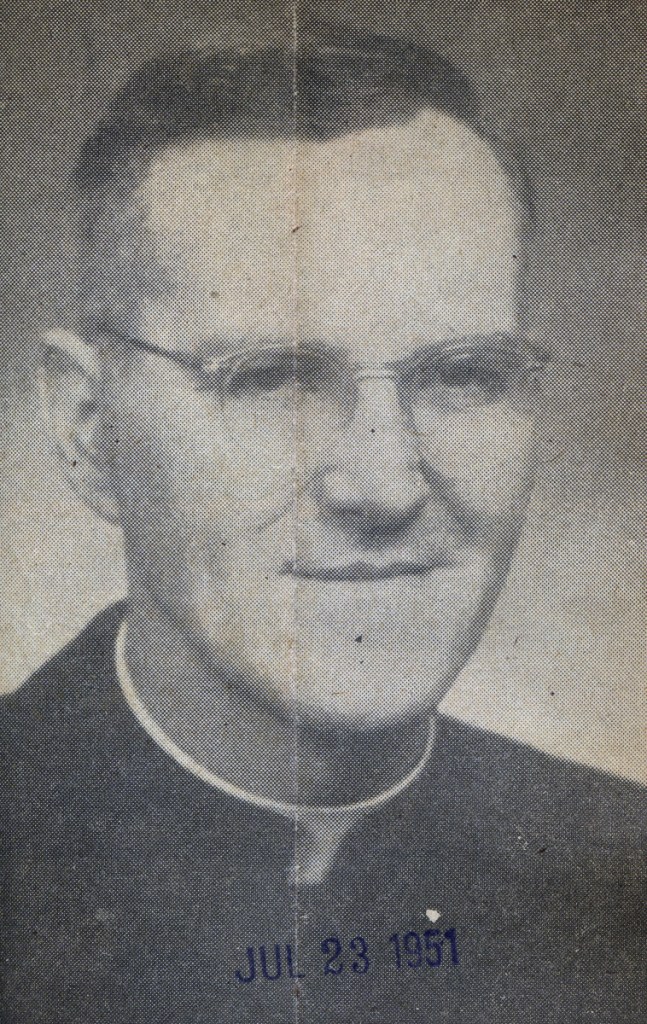
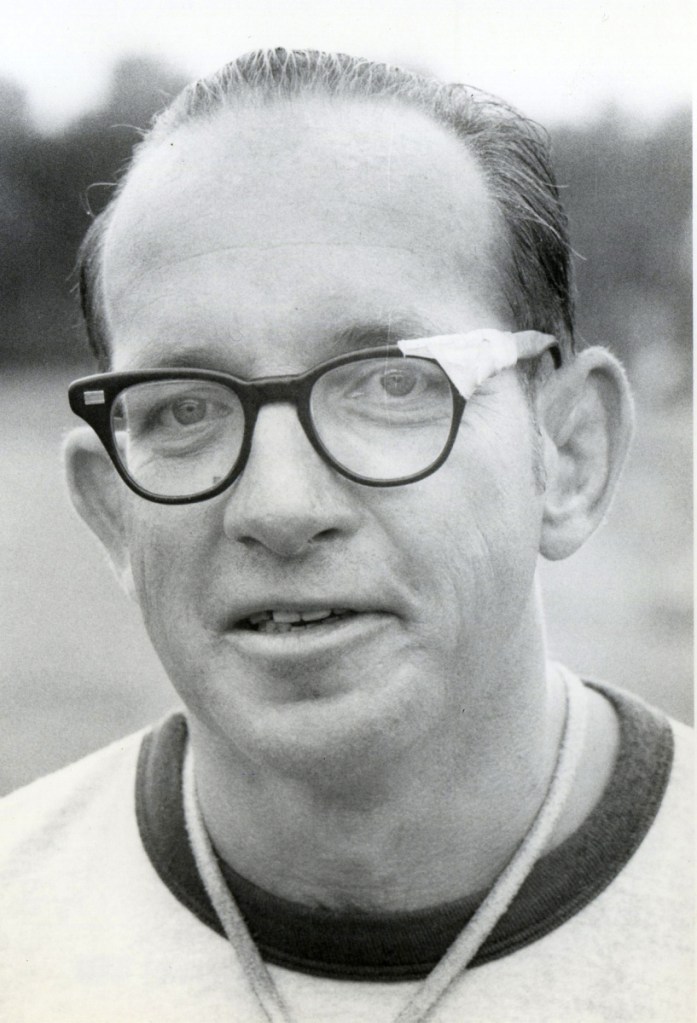
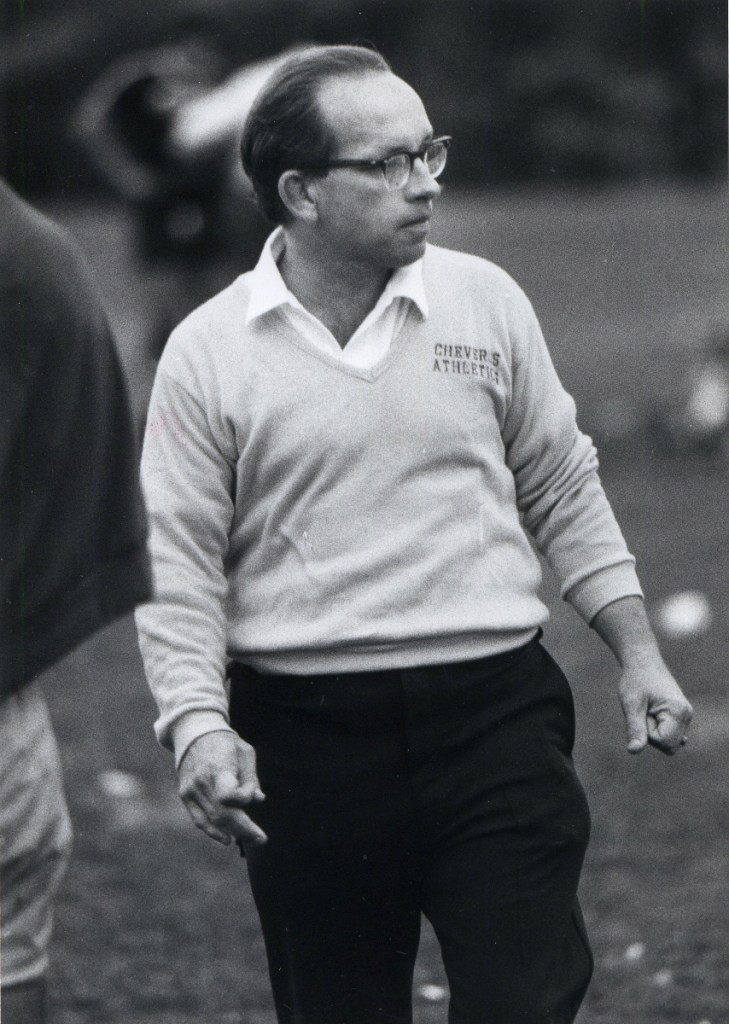
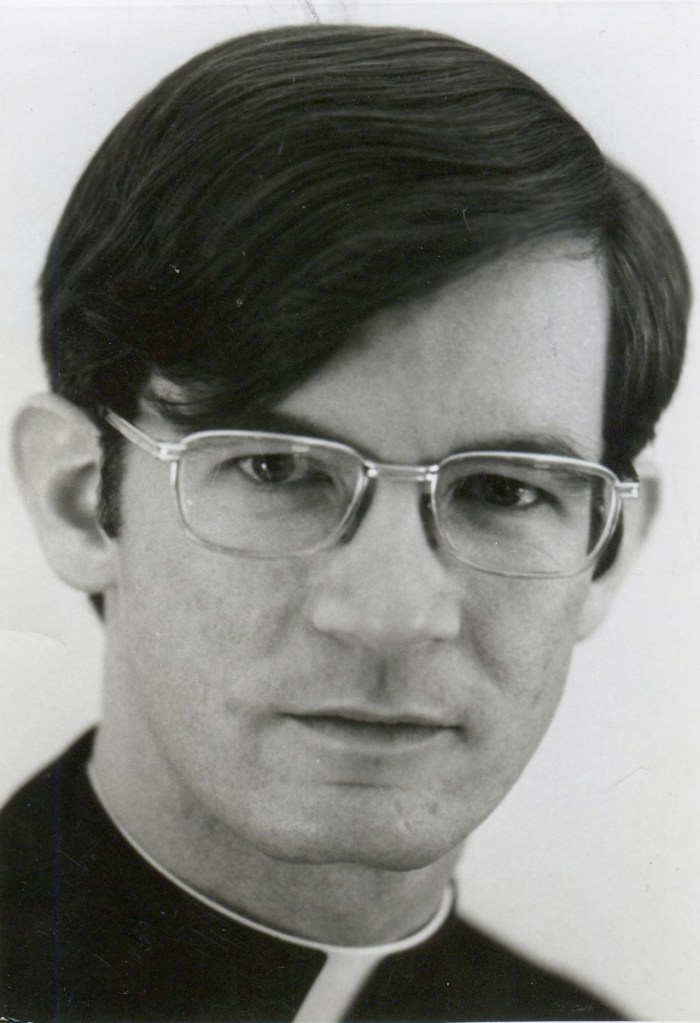
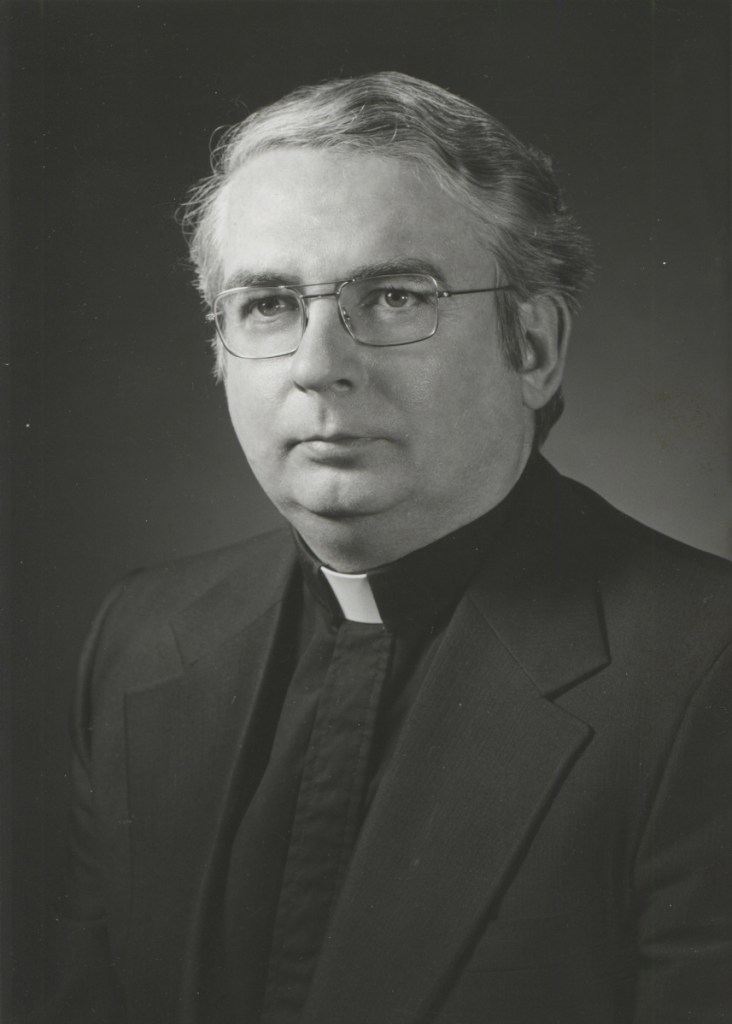
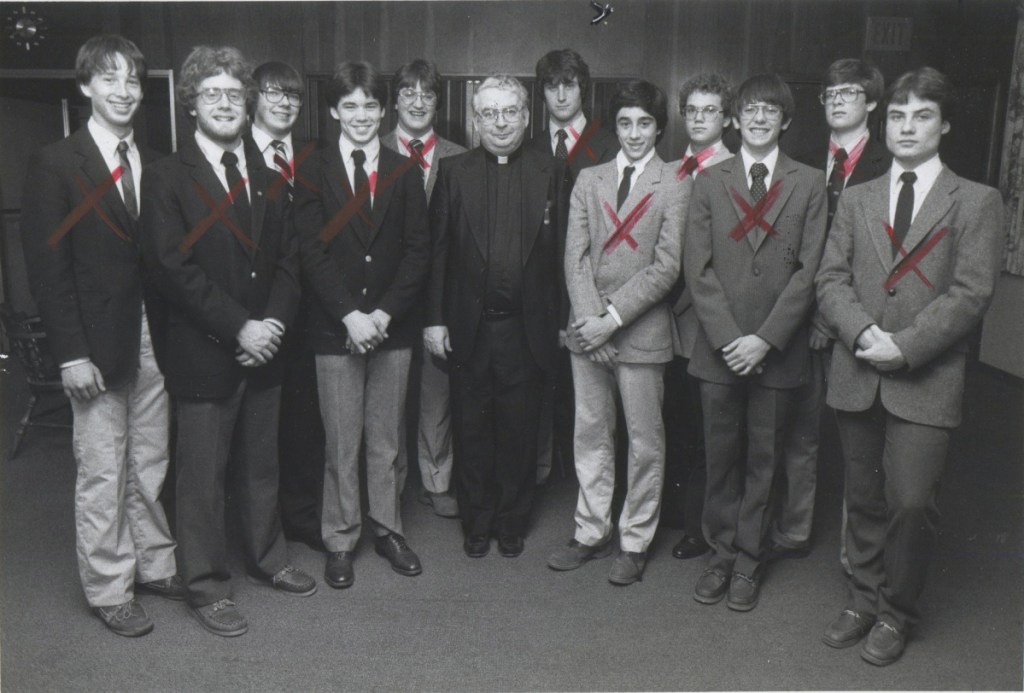

Success. Please wait for the page to reload. If the page does not reload within 5 seconds, please refresh the page.
Enter your email and password to access comments.
Hi, to comment on stories you must . This profile is in addition to your subscription and website login.
Already have a commenting profile? .
Invalid username/password.
Please check your email to confirm and complete your registration.
Only subscribers are eligible to post comments. Please subscribe or login first for digital access. Here’s why.
Use the form below to reset your password. When you've submitted your account email, we will send an email with a reset code.